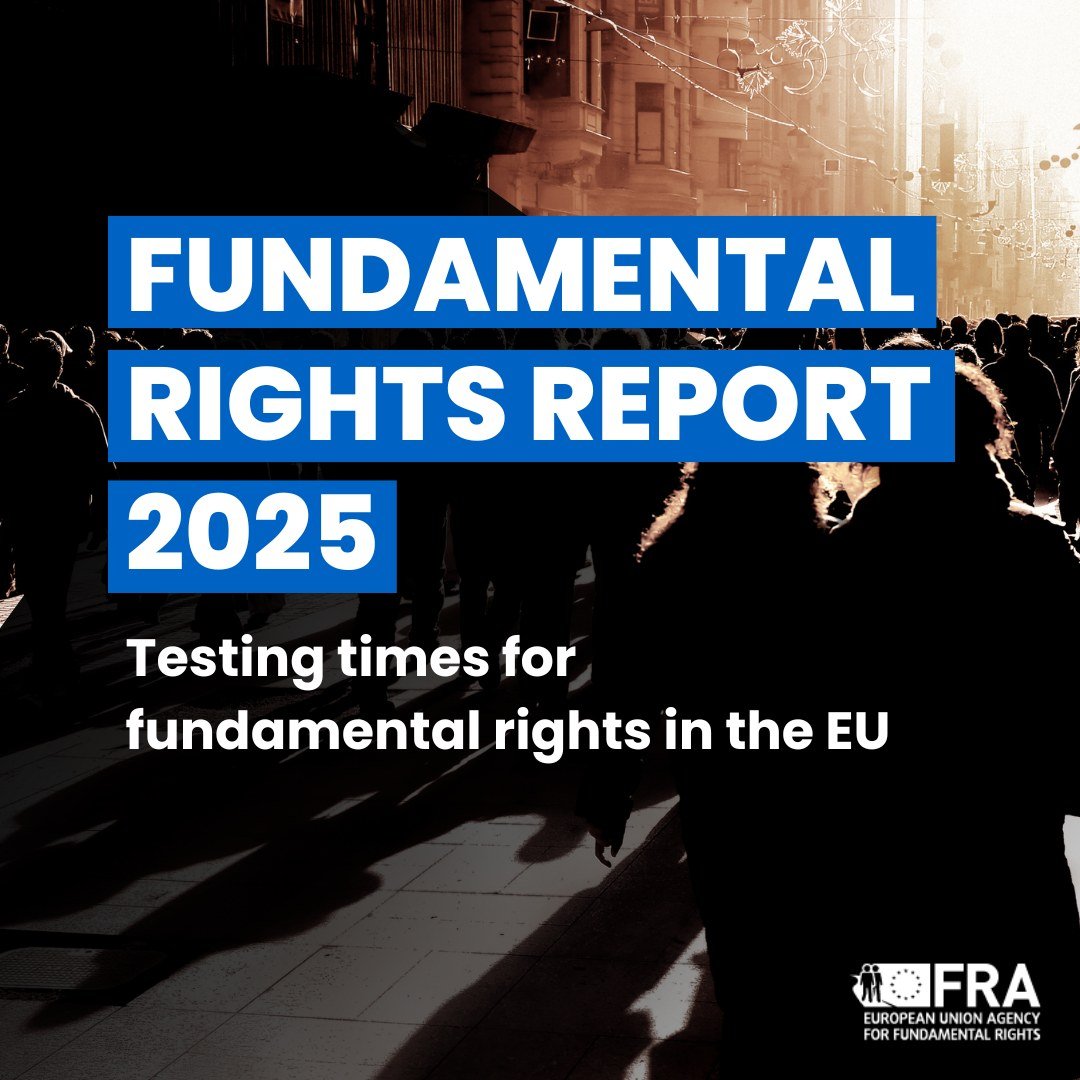Threats to democracy, stark levels of violence against women and rights abuses at the EU’s borders. These are some of the key challenges detailed in FRA’s Fundamental Rights Report 2025. The report provides telling evidence of fundamental rights under threat across Europe, a wake-up call for Member States and EU Institutions. With 2025 proving to be even more challenging, they must prevent the erosion of rights and stop democratic backsliding.
The Fundamental Rights Report 2025 focuses on key fundamental rights developments and gaps in the EU in 2024. These include:
- Threats to democracy: disinformation and misinformation, the growing use of AI and harmful rhetoric threatened free and fair elections across the EU.
- Widespread violence against women: 1 in 3 women in the EU still experiences gender-based violence.
- Pervasive discrimination, racism and rising hate online: Muslims, Jews, Black people and LGBTIQ people face increasing levels of discrimination, hate and racism. Harassment, hate speech and physical violence are a growing concern.
- Ill treatment of migrants: the EU issued new migration and asylum rules. Reports of rights violations along EU borders continued in 2024 and over 3,500 people died or went missing at sea.
- New digital regulations: the EU’s efforts to regulate online platforms and artificial intelligence (AI) are an important step for the protection of fundamental rights. The Digital Services Act and the AI Act are key measures to curb illegal and harmful online content, disinformation, and the impact of discriminatory algorithms, but strong and consistent enforcement will be essential to ensure that technology respects human rights.
To overcome such challenges, FRA calls on the EU and its Member States to:
- Ensure fair, transparent and safe elections: provide sufficient resources to implement and enforce EU laws to guard against electoral manipulation online. Effectively tackle threats of violence and intimidation during elections.
- Protect women from violence: enhance support to victims by improving reporting channels and enable women to come forward. Train frontline staff like the police and doctors in providing victim-appropriate services. Tackle the rise of cyberviolence by properly enforcing the Digital Services Act (DSA) and the Directive on Combating Violence Against Women and Domestic Violence.
- Tackle all forms of racism: act to tackle rising racism, antisemitism and anti-Muslim hatred. Collect data to feed into EU and national anti-racism laws and policies. Provide a safer online space for all and act against online hate.
- Strengthen fundamental rights safeguards at borders: improve search and rescue practices to save lives at sea. Provide safer conditions for processing new arrivals. Investigate reports of rights violations and establish independent monitoring mechanisms at the EU’s external borders.
- Reinforce rights protection online: assess and monitor the impact of AI on fundamental rights. Improve awareness of potential AI biases. Enforce the new EU digital regulations to counter rising disinformation and online hate.
Quote from FRA Director Sirpa Rautio:
“Fundamental rights in Europe are facing growing and serious challenges. Geopolitical tensions, rising intolerance and threats to election integrity are testing the resilience of our democratic institutions. At the same time, calls for simplification and deregulation risk undermining the vital safeguards that protect people’s rights. This is a wake-up call for the EU and EU countries to reaffirm their commitment – we need to act decisively to ensure fundamental rights remain at the core of all EU policies and actions.”
The Fundamental Rights Report 2025 provides a comprehensive overview of the state of fundamental rights in the EU. It highlights major developments and trends in 2024. It also presents FRA’s opinions on these developments as a call to action, urging Member States and EU institutions to stand up for fundamental rights and to address the gaps and challenges.






